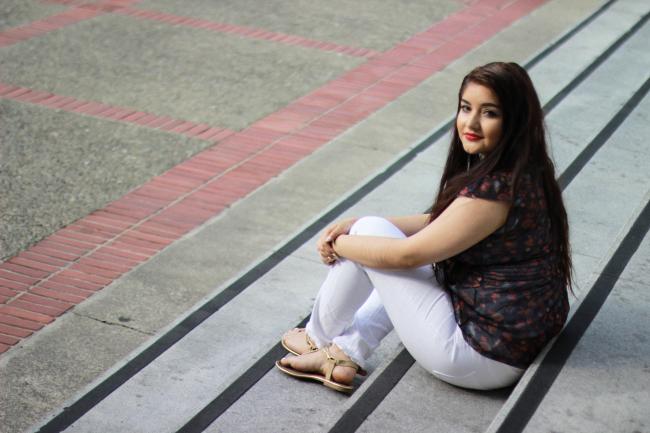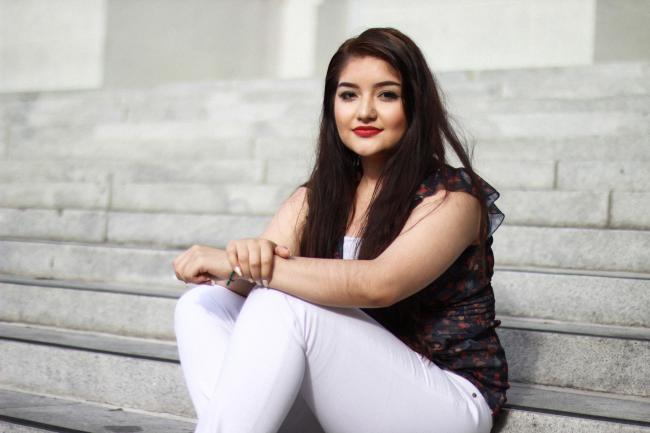October 18, 2016
Dear Donald,
The 2016 US Presidential Campaign has not only stirred the nation—it has also shaken the entire world. The unique and historic turn of events has changed the way we as a global community view politics. With developing technology and an overload of controversy on both sides, it is no surprise that the first presidential debate was the most-watched debate in American history—80 million people tuned in to watch. Hillary Clinton and Donald Trump discussed heavy-hitting subjects. Among those watching were hundreds of college students that have a lot to lose if Donald Trump becomes president.
The college students I focused on in particular are those that have been singled out as rapists. I have no need to specify which community was singled out as rapists because the narrative is constantly repeated, and it is circulating around the nation and the world.It is important to note that these toxic narratives have been a part of the American discourse for decades. The idea that Mexicans are lazy has long been a popular stereotype in America. Even though the Mexican community has historically proven that stereotype to be untrue, it still follows them today. I cannot help but to wonder how the new narratives will follow this community in the future. The Republican candidate has become a breathing manifestation of hate speech, xenophobia, and misogyny. So what happens when this symbol appears in one of the most progressive and diverse schools in the nation? More specifically, what happens to those who have been singled out by Trump and experience this symbol on campus in a so-called safe space for education? On top of having to deal with rigorous academia, a minimum wage job, internships, and extracurricular activities—not to mention the pressures of being a low-income, first generation, or undocumented student—they have to deal with Trump supporters building fake walls on campus and cut-outs of a figure who symbolizes a hatred toward immigrants.
While I am in favor of and fully understand the necessity of our freedom and privilege of free speech, what I wish to show here is the effects of that freedom. I understand that without opposing views there is no discussion, and with no discussion there is no engagement. What I wish to show here is the effects that these actions and symbols have on students who already face hardships on a daily basis in a prestigious institute—one initially built to educate and foster white men.
While I am in favor of and fully understand the necessity of our freedom and privilege of free speech, what I wish to show here is the effects of that freedom. I understand that without opposing views there is no discussion, and with no discussion there is no engagement. What I wish to show here is the effects that these actions and symbols have on students who already face hardships on a daily basis in a prestigious institute—one initially built to educate and foster white men.
As a first generation student and a part of the Latinx community, it took some time to feel like I was a part of this institution. I was burdened by the overwhelming idea that I was not sufficiently intelligent to participate in class discussions—these moments were heightened when I looked around in my classes and noticed I was the only Latinx student there. It took about two semesters to find the right friends, affiliations, and courses that made me feel included on campus. The thing with first generation students is that the majority of our families are low-income—giving up doesn’t advance our cause or meet our needs. You see, many of us are not striving for an education simply because we want the best job. No, we thrive because we want to make our parents’ sacrifices count; we thrive, not only because we want a good future, but also because we want the entirety of our family to have a good and prosperous rest of their lives. We continue to thrive because of the collective idea that we are essential for future generations of Latinx—our extended family—to thrive on a campus such as this one.
Furthermore, the Republican’s presidential nominee’s most recent controversy regarding leaked audio of an extremely lewd conversation involving women coupled with his history of misogynistic rhetoric prompted me to reach out to a female student and ask her about her experience with the campaign and incidents on campus. Born in Jalisco, Mexico, Karly Zuniga, an undocumented UC Berkeley student who identifies as a Womxn of color feminista was eager to share her experiences. When asked about her reason for being at UC Berkeley she said, “When I was younger, I always felt like I didn’t belong, and I would ask my parents why they brought me to the United States. It was not until I was older and saw them pained by work that I realized they did it all for me; I knew I needed to make their sacrifice worth it.” Afterwards, I asked her what she wanted to do with a degree from the University of California, Berkeley and her answer was, “I want to keep fighting for my people. Whatever I end up doing, it’s going to be for my people.” During my brief interview with Karly, we went over what Trump meant to her, and we discussed her reactions to the controversial incidents that occurred on the UC Berkeley campus.The thing with first generation students is that the majority of our families are low-income—giving up doesn’t advance our cause or meet our needs. You see, many of us are not striving for an education simply because we want the best job. No, we thrive because we want to make our parents’ sacrifices count; we thrive, not only because we want a good future, but also because we want the entirety of our family to have a good and prosperous rest of their lives. We continue to thrive because of the collective idea that we are essential for future generations of Latinx—our extended family—to thrive on a campus such as this one.
Q: Do you think the campaign and these occurrences on campus affect your study?
A: Yes, 100 percent and above. I never know what to expect walking to the library now. I get anxiety and I am unable to concentrate with everything that is going on.
Q: As a woman, what does Trump mean to you?
A: I see him as a verbally violent person. He constantly shuts Hillary Clinton up. His persona and what he represents makes me feel unsafe.
Q: How did you feel when you saw the Trump cut-out on Sproul?
A: I was walking to class, and it caught me off guard; I was overwhelmed by anxiety once I saw it; I already feel like I don’t belong. The idea that future generations might be digesting his rhetoric hurts me the most. That day I remember seeing a dad with his daughter. The father wanted his daughter to take a picture with Trump, but I can tell by the daughter’s face she was scared. The father made her put her thumbs up while next to the cut-out.
Q: What did you feel when you saw the fake wall being built on campus?
A: The wall really pained me. People were messaging me to be careful walking on campus. All my life I’ve felt like I was different; this feeling is too consistent. A lot of people defend themselves with freedom of speech, but when a person of color says or does something, they are framed as villains.”
Fellow undocumented University of California, Berkeley student majoring Political Science, Robert Nuñez, uses social media as a platform to command presence and speak his mind. On the walls being built on campus, Robert Nuñez wrote, “Somewhere on this campus, there is a student, whose mother was deported, who has to work to put himself/herself through school, who pays the same tuition as you, who gets off after an 8 hour school day, eager to hit the library and finish their essay; and to come home, open their laptop, and see this on Facebook? Disgusting.” Robert, an aspiring lawyer and policymaker believes that someone’s free speech is not greater than someone’s right to exist, to live, to peace, nor to get an education. On his social media accounts he finished his post by writing, “To my brothers and sisters, allies of our Latinx and undocumented communities, do not be discouraged. Be here, be heard, take up your space, know and be known. Be present, because this is exactly where they don’t want us to be.”
The thoughts expressed here are not necessarily that of the Division of Equity and Inclusion, the University, not official, not predictable, and not of one mind. In the spirit of the Free Speech Movement, the thoughts expressed here are those of the individual authors.
Images from top.






